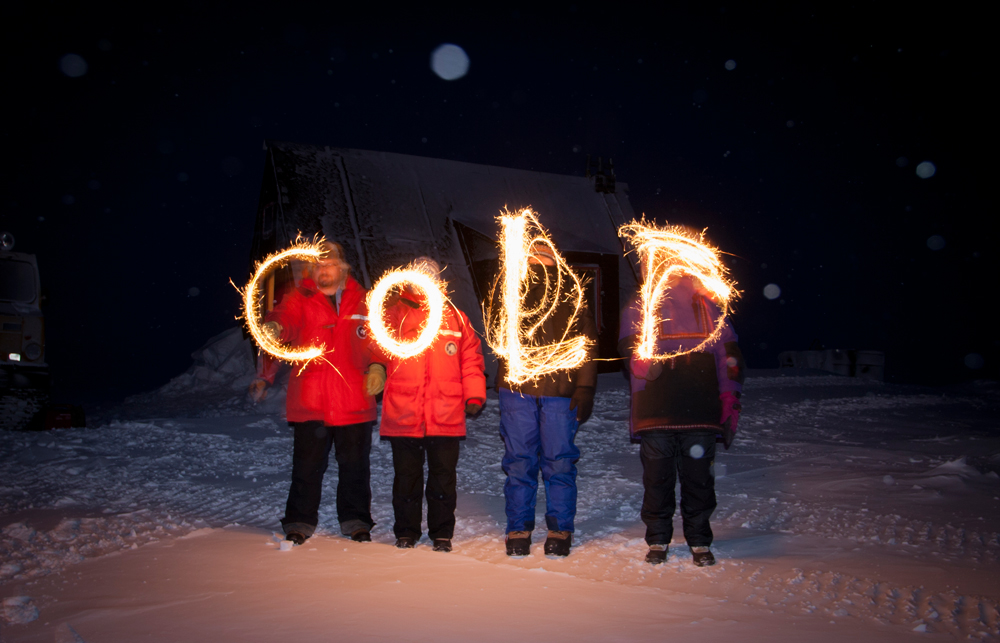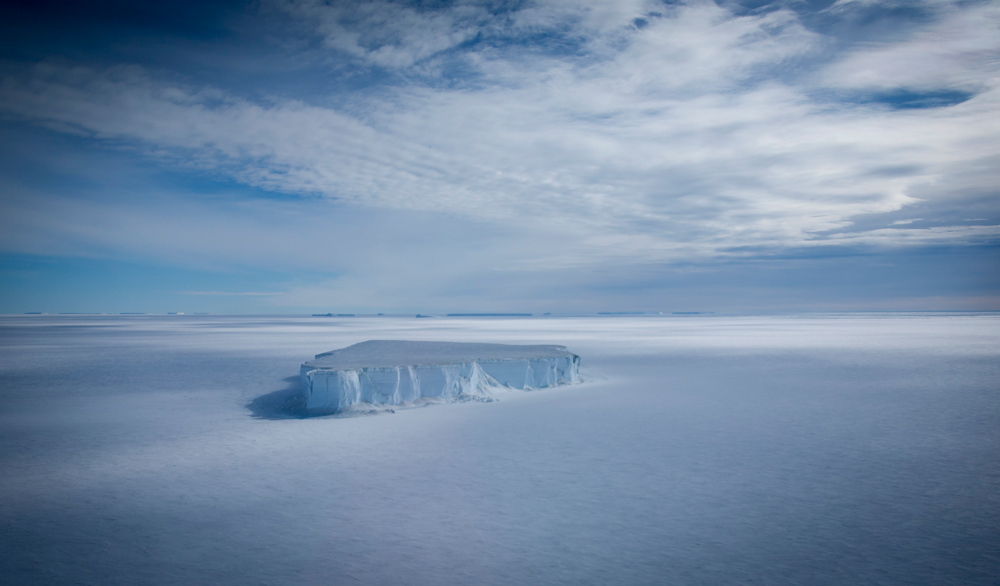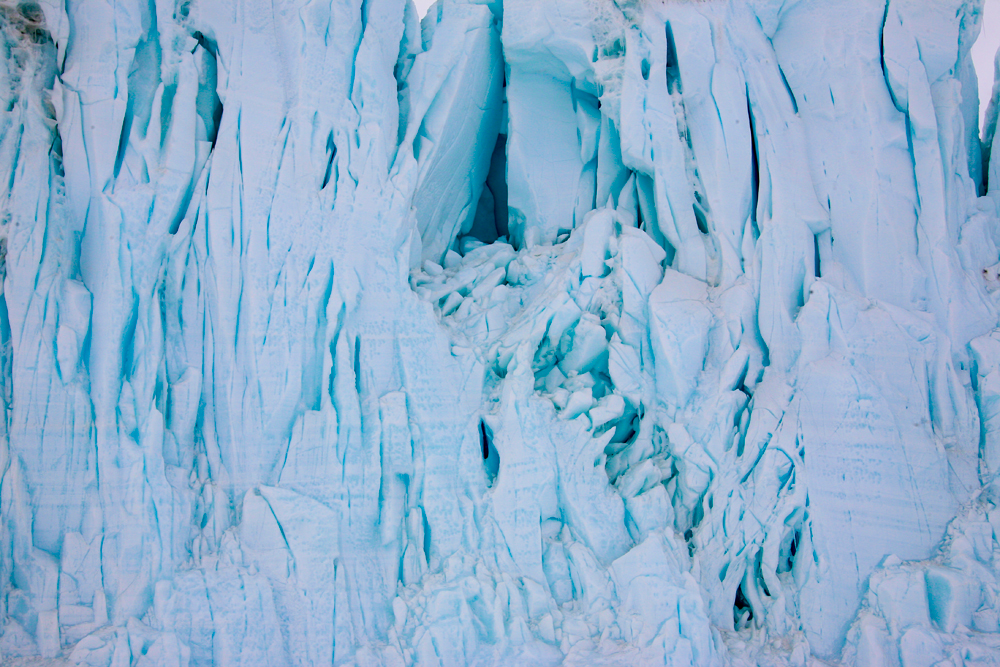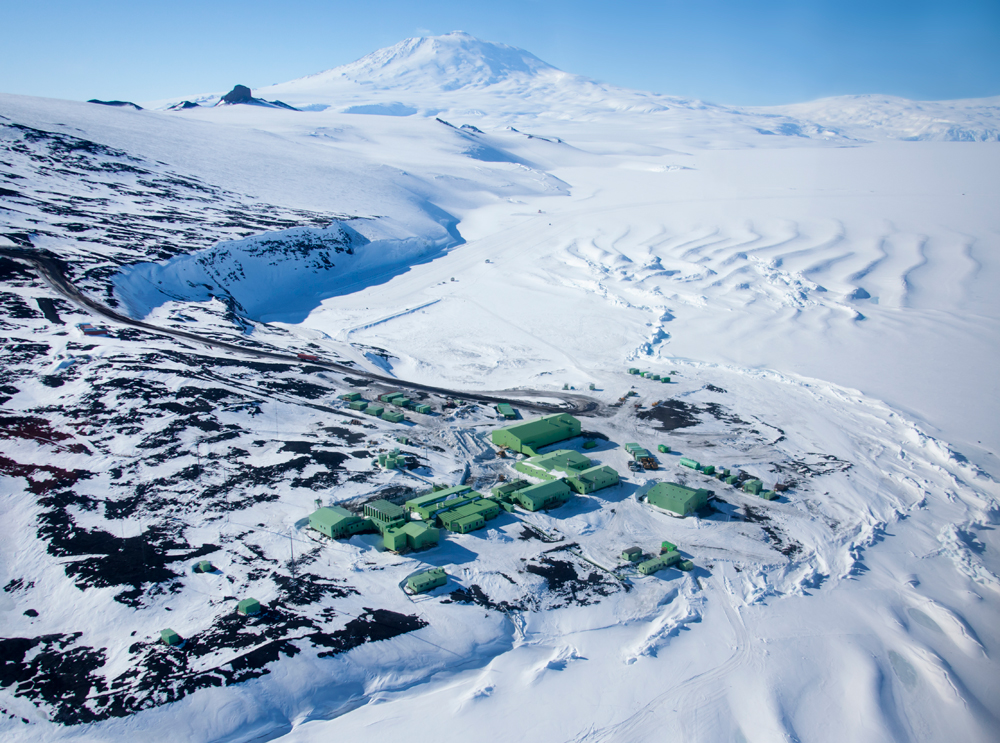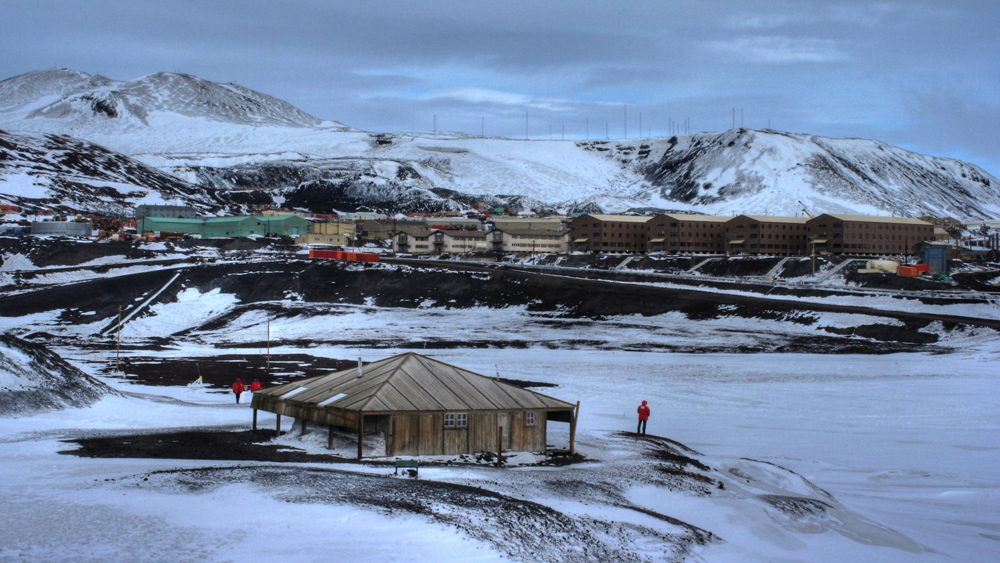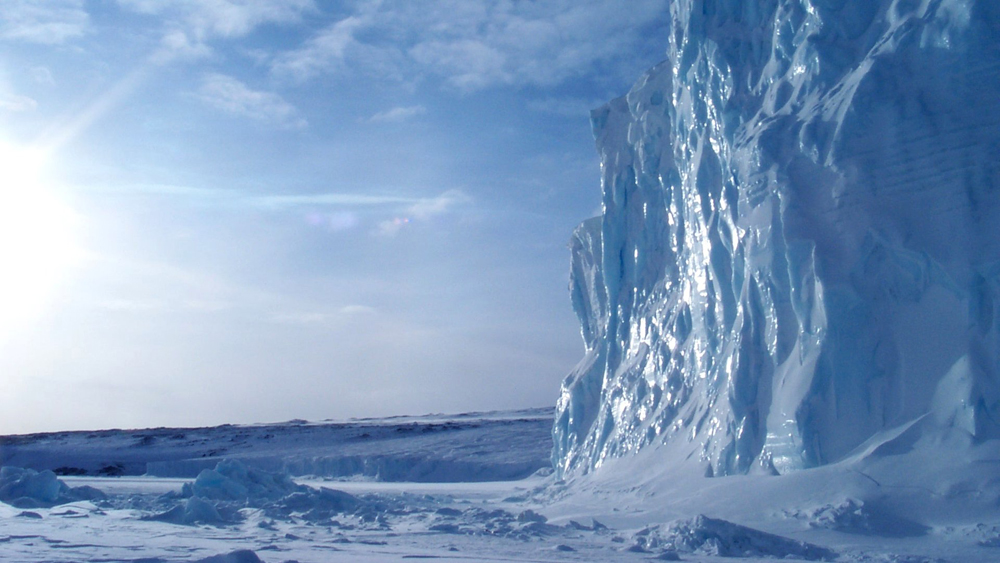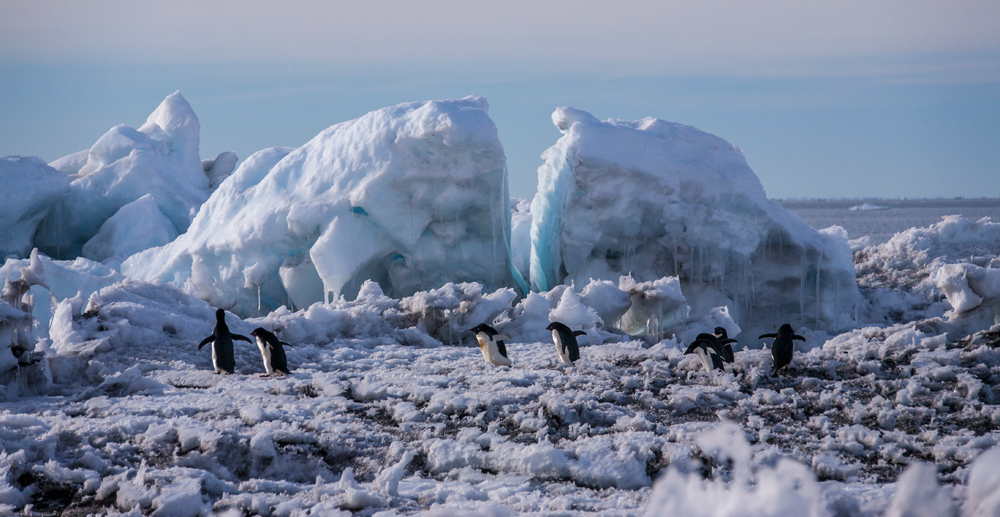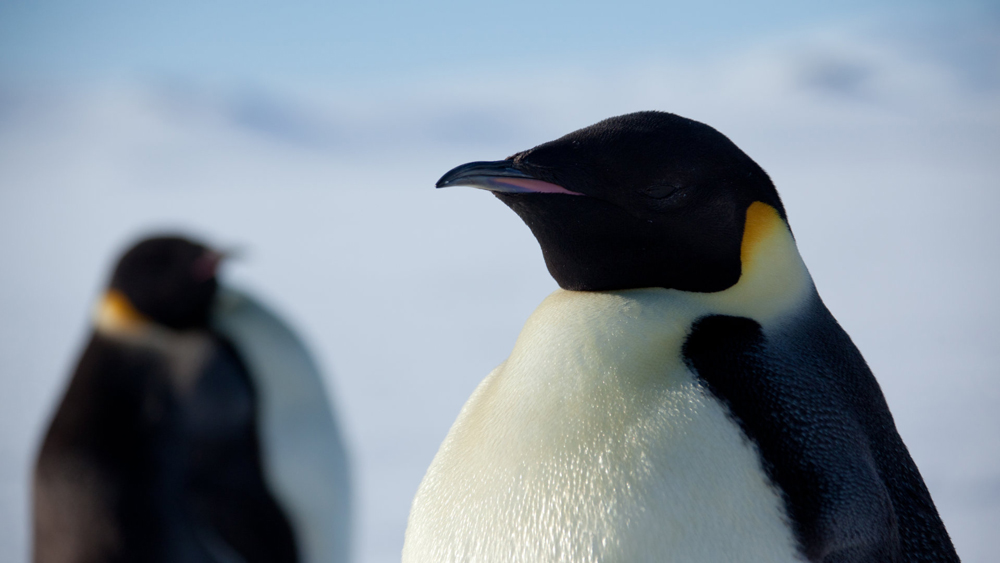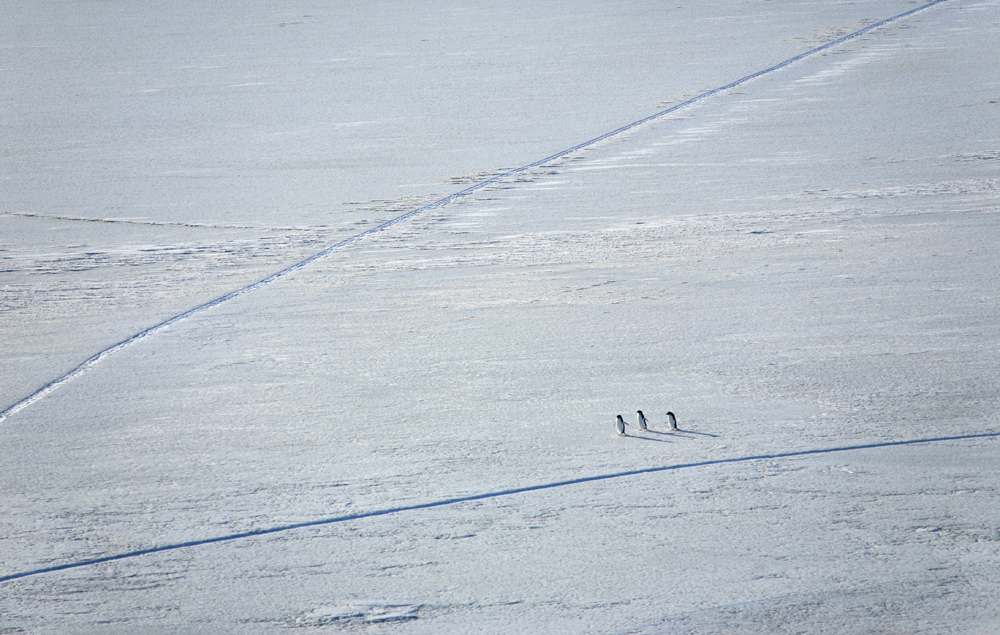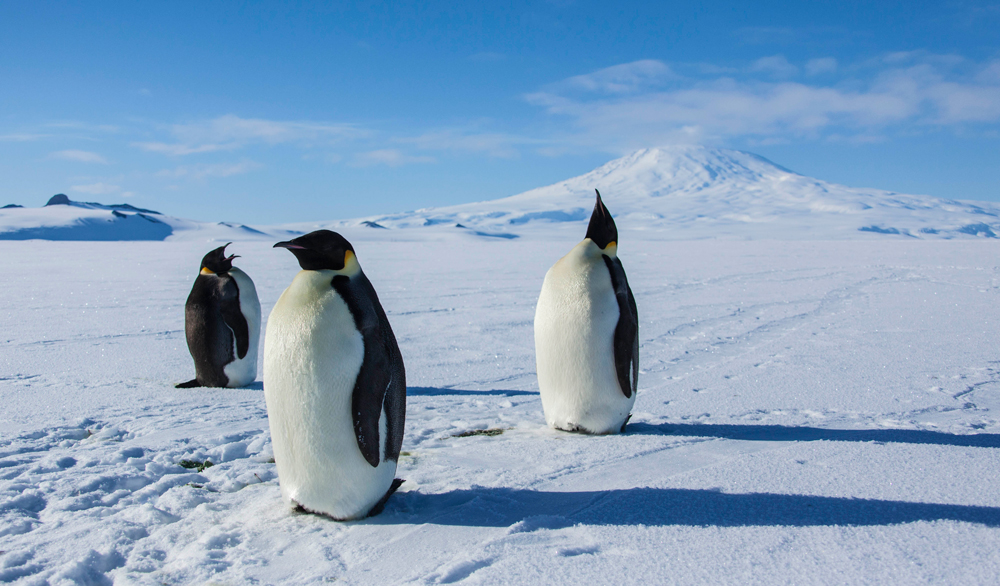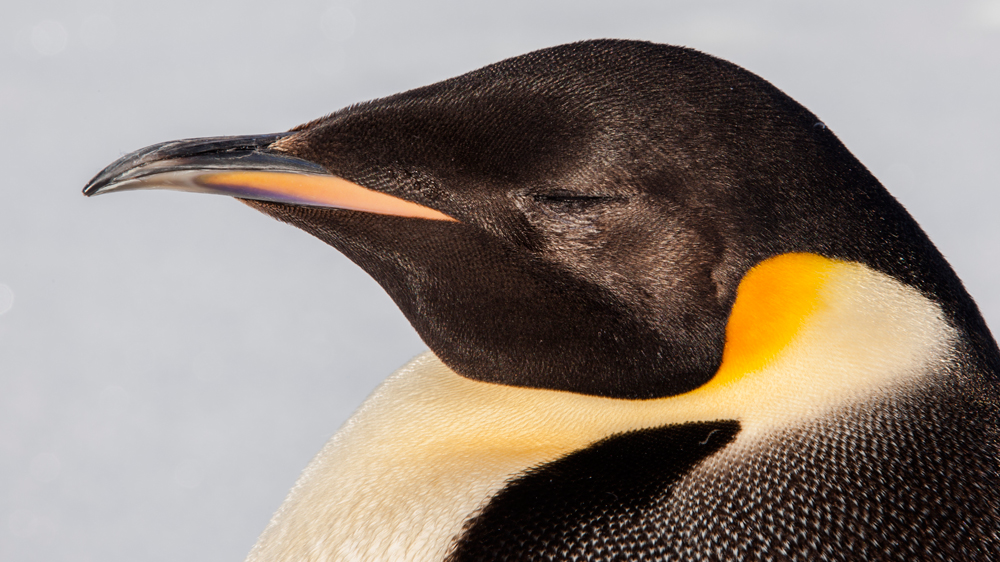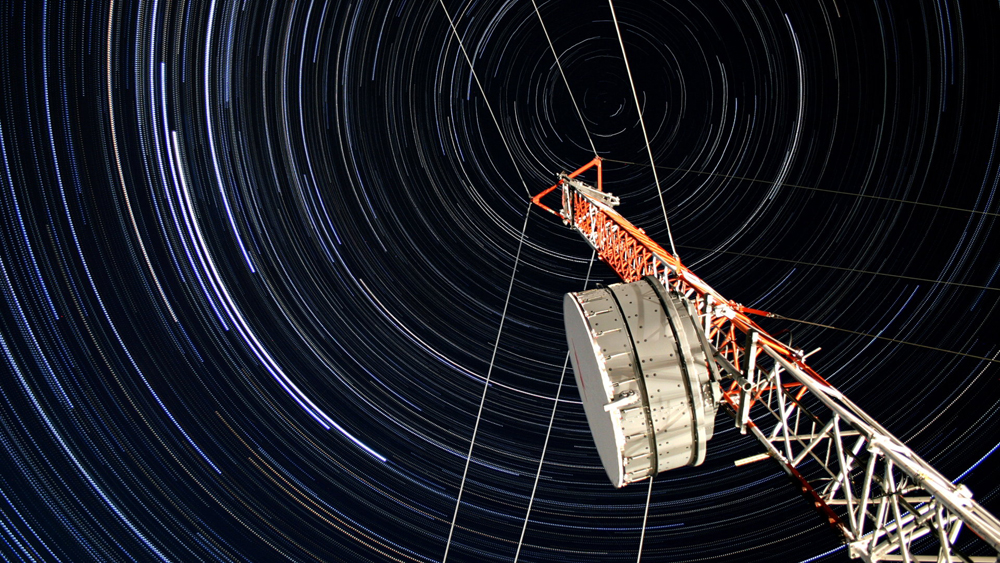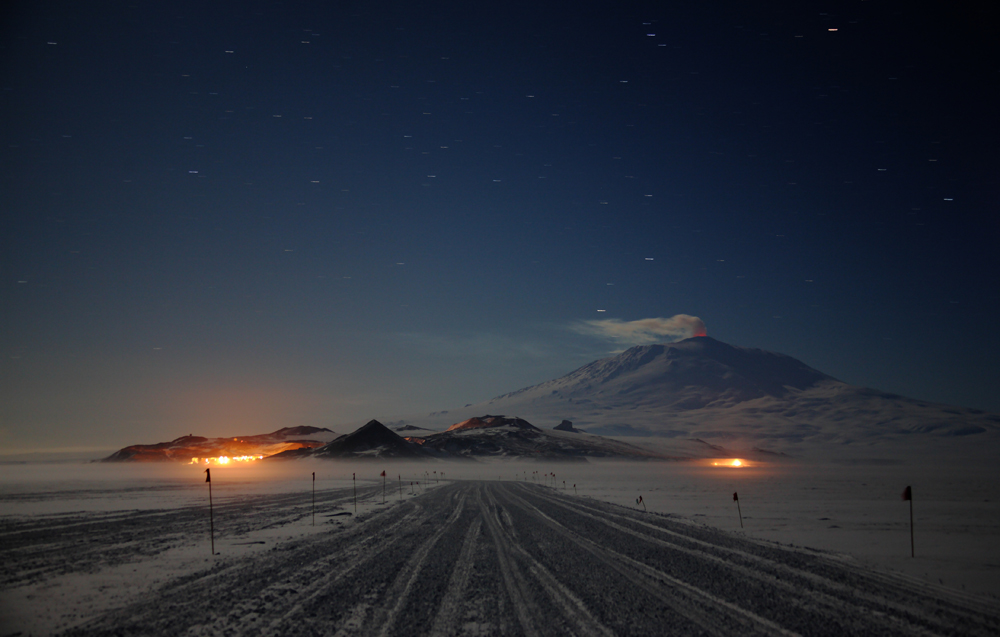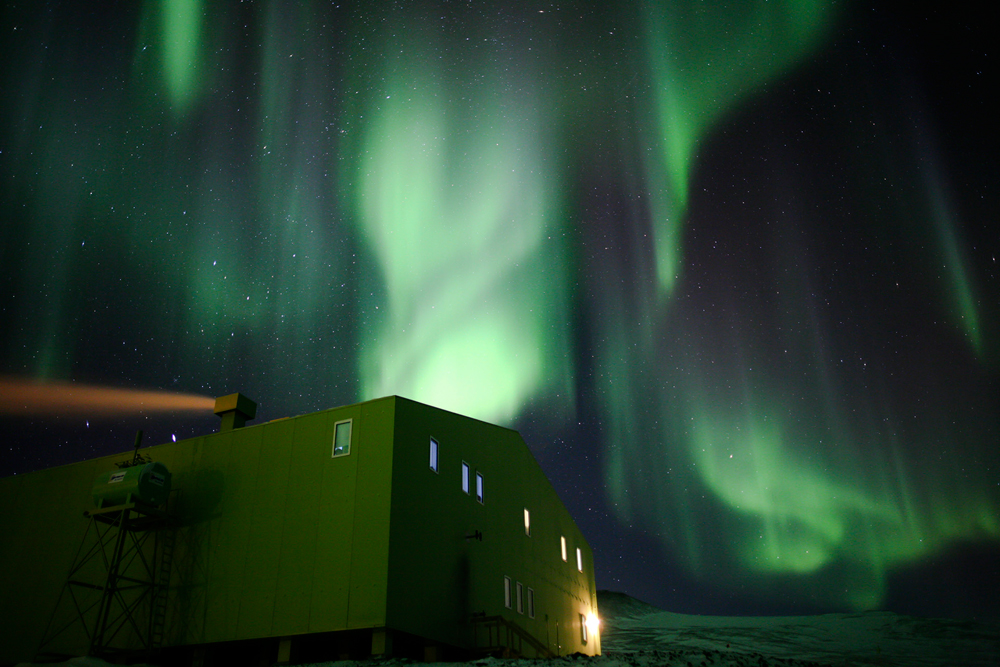Anthony Powell: Walking on thin ice
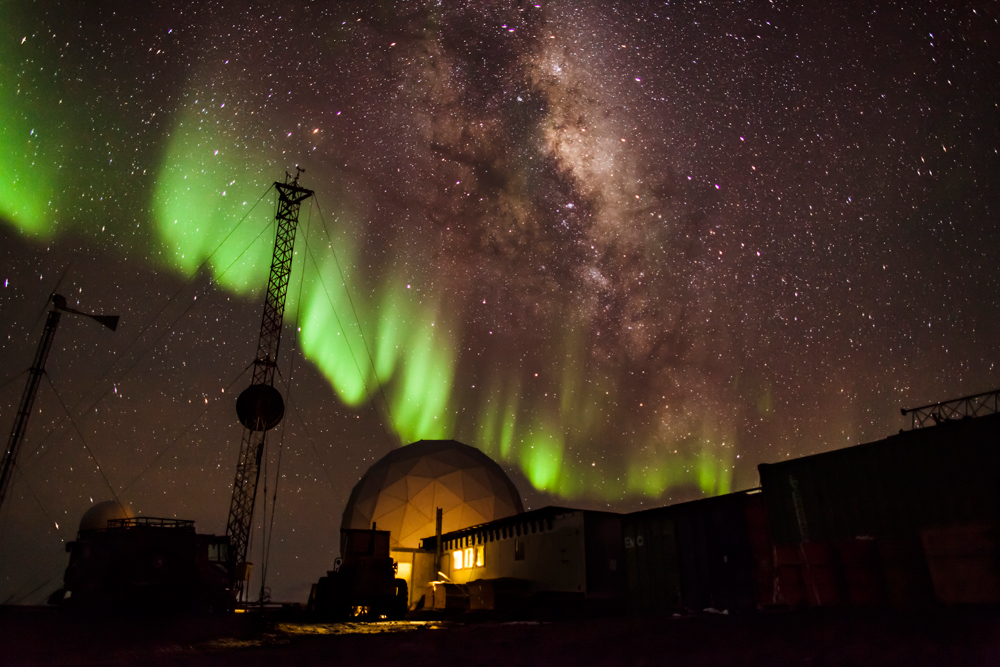
A sense of adventure and a year-long contract as a communications technician first brought Anthony Powell to Antarctica in the summer of ‘98. Daunted by the prospect of weathering a full twelve months in one of the world’s most remote regions, Anthony soon fell for the spectacular yet inhospitable qualities of his new surrounds. In the fifteen years since he first set foot on the stark, white shores of Scott Base (New Zealand’s polar research outpost), he has spent more than one hundred months living, working – and increasingly in his spare time – filming Antarctica. ‘Antarctica: a Year on Ice’ is his labour of love, a compilation of more than a decade in the life of the Kiwi-born engineer turned filmmaker, a meditation on the strange, hypnotic magnetism of this highly fragile yet tempestuous stretch of wilderness. Here, Emily Wong speaks to Anthony about the personal and political importance of Antarctica: its life-changing influence on his career and stance on climate change; and the significance of the Poles in our shared global, environmental future.
Emily Wong: Your film explores Antarctica from a number of perspectives: your personal point of view and the experiences of other human and animal residents in the landscape. What was your main agenda in making the film?
Anthony Powell: I guess the main thing was just to tell it from the everyday point of view – pretty much everything else you see about Antarctica is about scientists studying something. Most people don’t realise that the majority of people there are just everyday workers who keep the base running so that the scientific research can happen. The everyday point of view – that’s never really been told before. Winter in Antarctica had never been shown on the movie screen either. Pretty much every other film you see, the film crews are only there for a few weeks in the middle of summer and then they fly out. There’s never been that real insider’s point of view.
EW: Do you think there’s a particular kind of person willing to live in Antarctica, one perhaps more environmentally oriented than the average person?
AP: Possibly. I found that for most people that go down there the first time, myself included, it’s more for the idea of having a bit of an adventure; something new that few people have seen before. But once you spend time there, you really can’t help but fall in love with the place; everyone I know who has spent time there tends to become much more environmentally aware and quite protective of the place. There’s just something that feels very right when you see a place that is untouched. Even when you go to national parks around the world, they’ve all been manicured in some way for visitors. When you go somewhere and there’s no human involvement at all, it’s really quite remarkable.
EW: To what extent is Antarctica actually pristine?
AP: It’s pretty much the last untouched place left in the world. When they first set up a lot of the bases in the ‘50s and ‘60s, they’d dump trash in the sea in front of the base, and raw sewerage would flow straight out onto the ice. But they’ve really tidied things up a lot in the last twenty years or so, and now absolutely nothing is left behind – the environmental impact is almost nothing. There’s always going to be a little bit, just by the fact of us [humans] being there. But the situation has dramatically improved, even in the time since I’ve been going. When I first went down they would still get rid of old newspaper by burning it in an old incinerator building. They don’t do that now because they don’t want particulate matter ending up on the ice.
EW: What other kind of changes have you witnessed taking place there in terms of climate or environmental change?
AP: In the area that we’re in, because we’re far enough south, we don’t see any very obvious signs of climate change on the surface, although I’ve definitely noticed that the surface melt near Black Island and Scott Base and McMurdo Stations has been getting progressively worse. There are also massive changes, for example in the West Antarctic ice sheet where there’s a lot more snow fall because of increased humidity.
Climate change is definitely a very real thing. There are odd things that people like to fixate on, like ‘how come there’s more sea ice?’… Well, that’s because salt water freezes at -1.8 degrees, while fresh water freezes at zero. So we’re getting more snow fall, we’re getting more freshwater run-off from the glaciers, and we’re actually seeing sea ice and changes in the wind which is blowing the ice further north and letting more freeze in the south. There are penguin species that have traditionally only lived way up north on the peninsula that are now moving further and further south.
You might look at any one thing and wonder a bit, but when you get a lot of things adding up, one after the other… I admit I was a bit skeptical five or ten years ago about this whole idea of climate change, but you talk to more and more people who are doing research and… it’s serious stuff now.
EW: How do you feel your experiences in Antarctica have changed you and the people you’ve met there?
AP: Spending a winter down there is in many ways like having a reset button pressed on your life – you go down there with just a couple of suitcases and that’s it, there’s nothing to spend money on. You’re cut off from being bombarded by the everyday, so you just have to bat for more of the simple pleasures in life, like playing a game of cards with someone – more basic kinds of social interaction. There’s something very rewarding about that.
I think you definitely tend to form a lot of friendships because it’s a very like-minded group of people. There are a lot of different backgrounds, but there tends to be that commonality of that slightly adventurous spirit and wanting to get out and see the world.
I also wouldn’t have ever considered myself an environmentalist in the past, but when you see things – how solar energy is at the point where it’s cheaper than coal energy – you’ve got to wonder why you would even consider burning coal. I’ve definitely become a lot more environmentally aware.
EW: What are your experiences of returning to civilisation?
AP: The first time, after I came back after spending a year down there, it was really quite a shock to the system – the sensory overload is fairly extreme. When you’re on the plane, still an hour away from landing, you start to smell the chlorophyll in the air. That’s a really powerful smell when you step off the plane – just the smell of green things growing. You’re also not used to travelling fast so when you jump into a taxi to get into town and they’re driving along at 50km/hr, you start to white-knuckle and think ‘oh my god slow down, you’re going to kill us all’! And then there are all the things you’ve been missing since you’ve been away. It’s interesting – the things you tend to miss are just the simple things – the really simple foods, and seeing family and friends again. You don’t really crave a lot of the more high-end products that are always being pushed onto you here. You have a lot more appreciation for the simple things.
EW: Was it ever your intent to question, through your film, whether we as humans, should be setting foot on Antarctica at all?
AP: In terms of whether we should be there – without doing the research there, there’d be so many things we just wouldn’t know about. [Science on] ozone destruction, most of the climate change data we’re getting is coming from Antarctica: high-end as well as basic science. By studying the Antarctic systems, we can really get a good indication of what’s changing in the rest of the world. A lot of the scientists there like to compare Antarctica to the canary in the coal mine – a little change elsewhere in the world shows up as a big change there first. It’s hard to think of any other scientific programme that’s getting as good value for money, in terms of hard science being returned, as Antarctica.
EW: Along with images of extreme beauty, you also reference the raw, darker side of nature in your film – penguin corpses, the stench of the colonies. Was this deliberate?
AP: I was really just trying to give a realistic portrayal of what it’s like there – what you see and experience. The first time I went to one of the penguin colonies I was quite shocked. All I’d ever seen of penguins before was, you know, the happy penguin playing. The Adelie penguins are actually quite hostile towards each other – they’re covered in mud, they’re often fighting with each other and the sheer number of these thousands and thousands of frozen, dead penguins all over the place was quite a shock.
EW: In addition to beauty, do we also need to be confronted with hard truths to motivate us to action?
AP: For me, it wasn’t so much about showing the hard truths, more the experience of being there. I did intentionally touch on climate change towards the end of the film, but as a way of starting a conversation. I didn’t want to beat people over their heads, but rather get them thinking and maybe do some research for themselves. There’s more evidence for man-made climate change now than there is for smoking-related lung cancer, but most people don’t see it that clearly. The vast scientific consensus is that it’s a really bad thing. So my aim was just to start some conversations, to get people talking about it.
EW: What are you working on now? Where is film taking you? Do you have plans to head back to Antarctica?
AP: I’m working full-time as a filmmaker now. Last November I went back down to Antarctica for just over two months for a series of five minute-long web documentaries. It’ll be similar in style to the web series Yosemite Nature Notes, about Yosemite National Park in the States. In terms of Antarctica, I might do one episode specifically about Adelie penguins or sea ice cycles, or what it might be like to live a day there in the life of a chef. I’m also doing a TV series next year. I hope to get back down to Antarctica in October for a full twelve months, but you never know for sure. That’s if all the paperwork goes through.
EW: What do you hope audiences will take away from watching your film?
AP: I guess just an appreciation for Antarctica itself. I do believe it’s a place that needs looking after and protecting. It’s never been exploited for minerals and I think it has far more value down the line as wilderness than it does in terms of mineral use and resources. But the oceans around Antarctica are not currently protected by the Antarctic treaty – that’s something that needs to be looked into. [The ocean] is basically where the whole ecology of Antarctica is based; a very significant part that isn’t being protected.
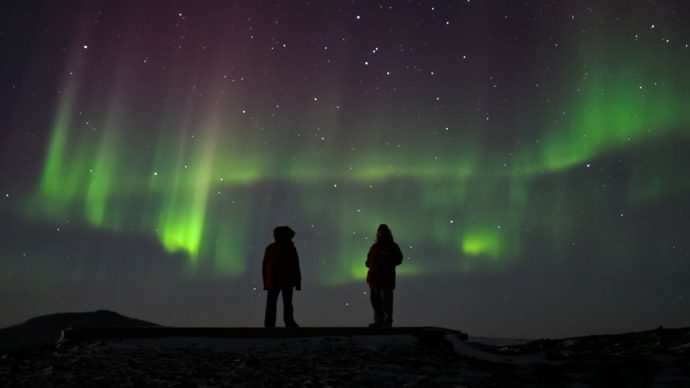
EW: Why is Antarctica is so important in the current environmental debate?
AP: In terms of biodiversity, there’s still a lot of really basic information we don’t know, like how long Adelie penguins live naturally. It’s probably about twenty years, but we haven’t been studying them long enough to know for sure.
Antarctica is basically untouched. Scientists can drill ice core samples from some two hundred to three hundred thousand years ago and get bubbles from the atmosphere at that time. It’s a huge record that goes back so far. As a resource for studies of what’s been going on in the planet’s history, it’s unequalled.
Antarctica: A Year on Ice screens at ACMI as part of the ‘Poles Apart’ season of climate-change films (presented in association with Climarte’s ART+CLIMATE=CHANGE festival), 18 April to 11 May 2015 For more information on Anthony Powell, visit: www.antarcticimages.com.
